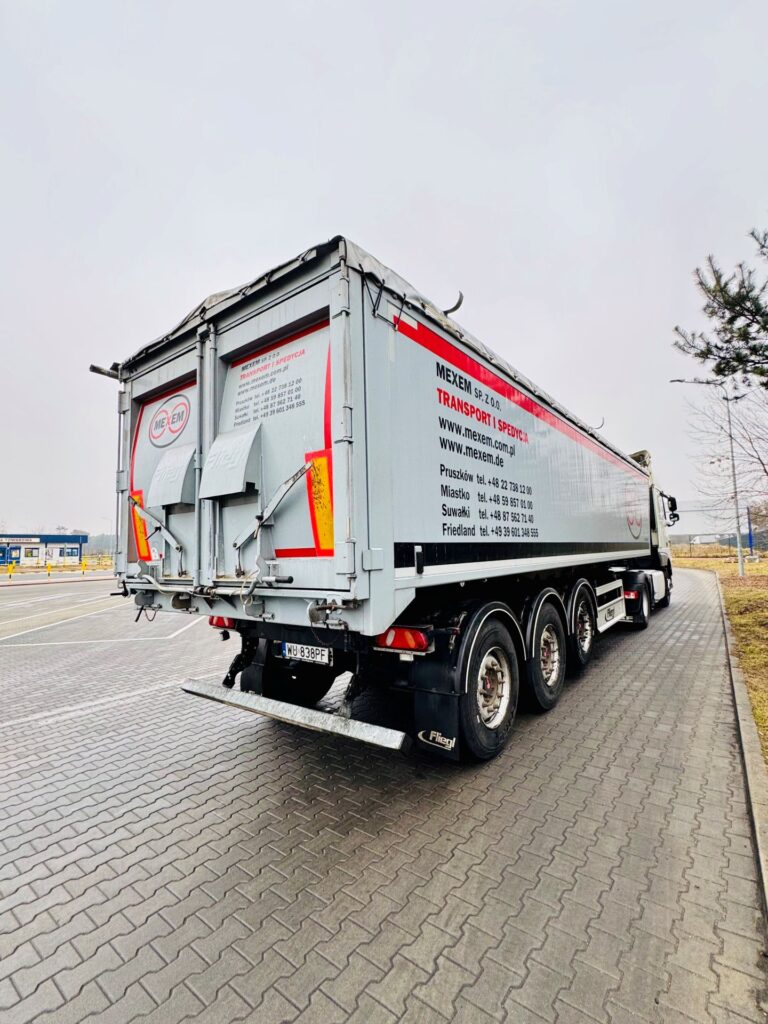
Logistics outsourcing
Outsourcing logistics - advantages and disadvantages of external outsourcing in logistics
In the current business environment, the strategic decision to outsource logistics services can be a key factor in ensuring the efficient and cost-effective management of supply chains and orders. By leveraging the expertise of external service providers, businesses can enhance the quality of their service, while also achieving significant cost savings. The optimisation of supply chains through the integration of modern technology offers a competitive edge by improving the efficiency and transparency of logistics delivery processes. This, in turn, leads to enhanced customer satisfaction and business growth.
A company that takes advantage of the opportunities offered by logistics outsourcing can gain a great deal. The key benefits of outsourcing core logistics competencies are as follows:
-
scalability of services - handling of returns, shipments and warehousing by external companies can be scaled and adapted to changes in the market (e.g. high and low seasons),
-
quality of service - thanks to access to modern technology, businesses can operate at a much higher level, offering their customers the possibility of professional service delivery,
-
systems integration - it is an effective strategy for many businesses to outsource their logistics infrastructure. This approach enables the utilisation of technologies and logistics systems that are complementary, providing seamless integration at every stage of the process.
Outsourcing logistics services - a process worth pursuing by an external company
It is also worth noting that a company leveraging the support of a logistics operator can focus on its core business, rather than on activities such as fulfilment. This approach enables greater efficiency and effectiveness in the market.
As an outsourced logistics management company, we are well-positioned to offer comprehensive services to companies across a range of specialties and industries. Our fleet and the software we utilise are designed to streamline logistics processes, ensuring efficiency and accuracy.
Our fleet
FAQ
A professional road transport quote depends on factors such as the route and its distance, the number of loading and unloading points, the weight and volume of the goods to be transported, the time and date of loading and unloading, fuel prices and toll rates, as well as the type of vehicle and the number of drivers required to handle the order. In the case of individual enquiries from day to day, prices may fluctuate due to the popularity of the route and the possibility of organising further transport orders for the vehicle used.
Above all, you will need a consignment note describing the goods (CMR for international transport) and a certificate of origin. In the case of the transport of selected categories of goods, such as perishable foodstuffs, animals or waste, for example, additional legally regulated documents will also be required. If goods are exported outside the EU, documents necessary for customs clearance such as invoices, export documents and import declarations will be required.
First and foremost, this is due to the need to assess whether the value of the carrier's liability insurance policy is high enough to fulfil the order. In the case of high-value goods and/or goods that are particularly vulnerable to damage, we recommend additional Cargo insurance.
The time required to transport a load depends on a number of factors, primarily the driver's working hours and the speed limits on the route. Drivers of vehicles with a maximum permissible weight of more than 3.5 tonnes can drive for up to 10 hours a day, and the speed limit for such vehicles in most European countries does not exceed 80 or 90 km per hour on expressways and motorways. An important factor affecting the speed of an order is the time taken to load goods, which counts towards the driver's daily working time of 13 hours as standard (and a maximum of 15 hours). It is also worth bearing in mind that there are restrictions on the movement of lorries during public holidays and holiday periods, which may additionally affect the delivery time.
Restrictions on the movement of vehicles and vehicle combinations with a maximum permissible weight of more than 12 tonnes are set out in the regulations of the Minister of Transport. They prohibit the movement of vehicles and vehicle combinations with a maximum permissible weight in excess of 12 tonnes on public roads throughout the country, on public holidays and at certain times on days preceding public holidays, as well as during most weekends during the holiday period. However, it is worth remembering that there are several exceptions to the described restrictions and, among others, they do not apply to vehicles that transport food, medicines, live animals, postal consignments, fuel or municipal waste.
https://www.gov.pl/web/infrastruktura/ograniczenia-w-ruchu
Pursuant to a decision by the Mayor of the City of Warsaw, vehicles with a permissible total weight of over 16 tonnes are prohibited from entering Warsaw from 7.00 a.m. to 10.00 a.m. and from 4.00 p.m. to 8.00 p.m. The Municipal Roads Authority issues C-16 badges for such vehicles, which, in connection with their operations, must enter Warsaw during the hours of restriction. https://zdm.waw.pl/sprawy/zezwolenia-i-identyfikatory/pojazdy-ciezarowe/identyfikatory-c-16/













